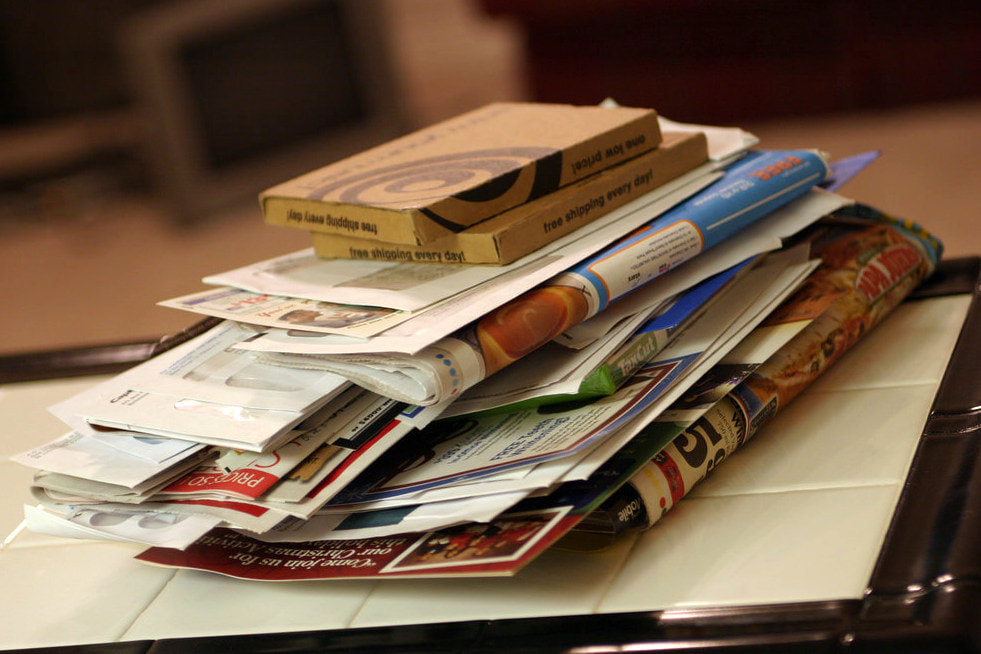Here’s a thought experiment with two scenarios: imagine you set out to pay any open bills that have arrived in the last couple of days.
Step 1: when papers arrive, it’s a simple matter of sorting into a couple of basic categories at the point of entry (i.e. your entrance hall!):
Incoming paperwork, electronic version This does not take care of all of your incoming paperwork, though: don’t forget that a lot of your correspondence these days is electronic! Emails are only the top of the iceberg, with all kinds of social media messages flooding our brains with bits of data, but for the sake of giving you an idea what to do with those, let’s look at your inbox and ways to deal with all those messages. You’ll realise quickly that there are lots of similarities to dealing with paper mail. Here’s how most people deal with incoming emails: they open their mail program, (are shocked by the sheer number of emails in their inbox,) skim through all the emails, reading some of them completely, sometimes marking them using tags or making them ‘unread’ again, and then half deciding which ones are important and need addressing straight away. And then they get on with it and deal with the ones that come to mind as important first. During the time it takes to reply to that first email they choose, more emails come in and are being read (either interrupting the reply to that first one, or right after sending that reply). Can you feel the pressure mounting? This way of dealing with emails keeps you tethered to the mail program, there is constant distraction and disruption, and after dealing with that first email, another round of “let’s read all of them and decide which one is the most urgent one” and getting on with that one. Over time, emails will accumulate in the inbox and make dealing with them ever more time-consuming. If you think about it, this is exactly the same approach that leads to the one paper pile on the desk that contains everything. Rather than reading one email at a time, and taking a decision about it there and then, a lot of time is spent reading the same stuff over and over again. I propose a system that closely mirrors the paper version of incoming correspondence: Open the inbox and read one email. Take the action that corresponds to your decision about this email after reading it:
Comments are closed.
|
Ask the ClutterMeisterIdeas to help clear away the mess in your homes and in your minds.
Feel free to share any of my posts, but please put in a backlink to the original blog post. Thank you. The author
Hi, my name is Tilo Flache. My mission: help clients declutter mind and space.
This blog contains pointers for your journey towards a happier living experience. Archives
November 2023
|



 RSS Feed
RSS Feed




